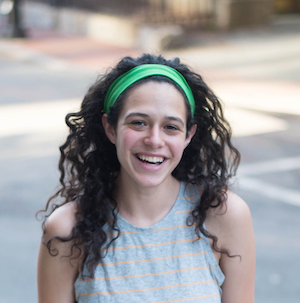AI Has Much to Learn From Childhood Curiosity
Spotlights ·Edited by Maedbh King
Eliza Kosoy grew up in New York and attended Emmanuel College where she studied Mathematics. She then spent three years at MIT in the lab of Josh Tenenbaum. She is starting her second year in the psychology graduate program at UC Berkeley where she studies developmental psychology. She is supervised by Prof. Alison Gopnik.

What drew you to study the intersection between child development and artificial intelligence (AI)?
I have always loved working with children, I find it extremely fun and rewarding, kids have wonderful personalities and are extremely funny and insightful to me. It is nice to take a break from adults every now and then. I am also drawn to the interesting nature of AI research. I studied math for my undergraduate studies, and then spent some time in both a computational cognitive science lab and child development lab at MIT after undergrad which led me to where I am today.
How can children inform artifical intelligence algorithms?
My work attempts to understand how children learn novel concepts quickly and with little data in an effort to make more human-like machine learning algorithms. Recently I have been working with Deepak Pathak, Pulkit Agrawal and Alyosha Efros at BAIR (Berkeley Artificial Intelligence Research) on how to make AI more naturally curious. We are investigating intrinsic curiosity in children and how that might be beneficial in achieving goals. We use various environments originally created for testing AI agents for testing children on related tasks. I am also working on making an Omniglot JR. dataset that people can use for machine learning tasks which captures how children create and write novel letters by analyzing their stroke patterns. We also look at how well kids are at classifying novel letters in the Omniglot dataset. This is work I started at MIT working with Josh Tenenbaum, Brenden Lake and Laura Schulz.
How will your findings have real-world implications?
AI has various applications for the world, ideally making certain mundane tasks more automated and thus freeing humans from certain kinds of work, perhaps we were not meant to be doing. Investigating the nature of curiosity has potential for changing its purpose for people and maybe even encouraging everyone to be a bit more naturally curious.
Finally, what advances would you like to see in your field in the next two decades?
I would love to see an application in education where we could provide children all over the world with a low-cost personal teacher that helps them learn things faster based on their learning style and interests in the form of a tangible AI.